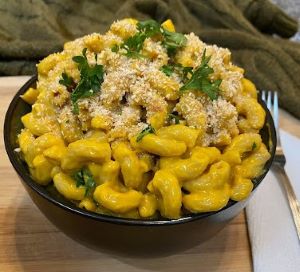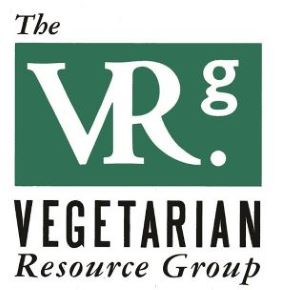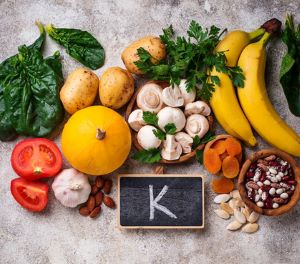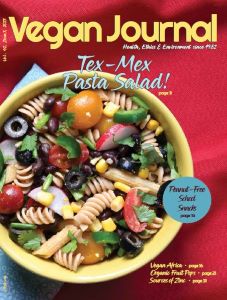Posted on
November 23, 2023 by
The VRG Blog Editor

Mac and Cheese photo from Di-Vine Plant Based Cuisine
The Vegetarian Resource Group maintains an online Guide to Vegan/Vegetarian Restaurants in the USA and Canada. Here are some recent vegan restaurant additions. The entire guide can be found here: http://www.vrg.org/restaurant/index.php
To support the updating of this online restaurant guide, please donate at: www.vrg.org/donate
Here are some new additions to VRG’s guide:
Bonkoko, 6802 Park Ave., Guttenberg, NJ 07093
Bonkoko’s myriad of vegan ice cream flavors listed includes: their most popular, Coconut Pistachio Crunch, Ginger Cookie, Blueberry Crumble, and Banana Nut Caramel Chocolate Crunch to name a few–all available by the scoop or pint. There are also Popsicles, with and without ocean harvested Sea Moss, in Mango Lemonade, Pineapple Blueberry Lemonade or Mixed Fruit. If a baked treat is more appealing, maybe consider a few varieties of Cookies or Banana Bread. Here are a few of their Smoothie selections. For a boost, you might try The Popeye with a choice of plant milks, mango, banana, kale, and of course, spinach. PB B&J features, plant milk, peanut butter, banana, and strawberry.
Di-Vine Plant Based Cuisine, 4595 Jonesboro Rd., Forest Park, GA 30297
Sample entrées include Famous Mocktails (a delicious take on Jamaican Oxtail made with an assortment of beans), Fried Chicken (made from gluten – BBQ, sweet chili, plain), Curried Chick Pea (warm spices simmered with potatoes, coconut milk, and turmeric). All large entrée meals include 3 sides. All small entrée meals include 2 sides. Sides include Cabbage & Kale, Potato Salad Mac & Cheeze, Rice & Peas, Fried Plantain., Vegetable Patty, Spinach Patty; soups include Pumpkin Soup and Red Peas Soup (red beans with carrots and vegetables). The menu also features a number of desserts such as Sweet Potato Pound Cake, Coconut Strawberry Cake, and Banana Pudding.
Flour + Time, 1133 Huff Rd. NW, Ste. F, Atlanta, GA 30308
Enjoy their vegan menu of pastries, treats, and coffees. Sample items – Veggie Pot Pie; Pecan Pie; Key Lime Pie; Pain Au Chocolat (chocolate croissant; and Oatmeal Cream Pie.
Meeks Vegan Kitchen, 12778 S. Harlem Ave., Palos Heights, IL 60463
Appetizers include Stuffed Peppers (5 mini bell peppers stuffed with rice, Beyond Sausage, Impossible Meat, Mushrooms, Vegan Cashew Cheese, and Meeks Secret Seasonings). Several vegan pizza options including The Top Shotta Vegan Pizza (Plant-Based Jerk Chickn, banana peppers, red and green bell peppers with a BBQ sauce base with vegan cashew cheese); 7 Vegan Burritos; 16 Vegan Sandwiches including Tone’s Ultimate Vegan Philly (toasted French roll with lionsmane mushroom, oyster mushrooms, green peppers, onions, vegan mayo, and vegan cheese); 5 vegan wraps; 5 salads; sides including guacamole, salsa, and chips; as well as several desserts.
Vida Café, 3522 Blue Bonnet Cir., Fort Worth, TX 76109
In the mood for Italian cuisine? Then, come on down to Vida Café to relax and feel like you are at home! Run by a mother-son duo, this establishment offers a variety of vegan Italian items for all eating times in the day. With plant-based spins on classic dishes like spaghetti, alfredo pasta, minestrone soup, mozzarella sticks, bruschetta, meatballs, and a Monte Christo sandwich, there won’t be a single traditional Italian dish they won’t have! Come on down to get a little bit of Italy in your life!
Yummy’s Vegan Take Out, 6552 James B Rivers Memorial Dr., Stone Mountain, GA 30083
Enjoy the flavors and spices of ancient Indian cuisine, alongside Mex-Tex, and “some of the good ol’ American delights.” Main Eats – Vegan Chiki Chipotle Sandwich (fillet in a burger bun topped with vegan cheese, lettuce, tomato, Veganaise, mustard, ketchup, and yummy creamy chipotle sauce); Yummy Plate (bed of rice, vegetable curry, and roti (flat bread) with lentil soup, comes in a 9”x9” box); Vegan Burrito Wrap (flour tortilla filled with black beans, vegan cheese, lettuce, tomato salsa, vegan mayo, and option of avocado); Sides including dahl soup, samosas, and spring rolls; Desserts (Cinnamon Roll (baked run roll with cinnamon, topped with vanilla icing); Vegan Carrot Cake).
Yvonne’s Vegan Kitchen, 11 W. Dayton St., Pasadena, CA 91105
They sell a wide selection of Yvonne’s vegan, gluten-free cakes, cookies, donuts, brownies, Vegan Cheeses, healthy snacks, and platters, and offers nationwide shipping, pick-up in Pasadena, or local delivery in Southern California.










